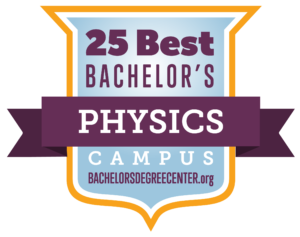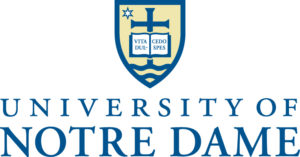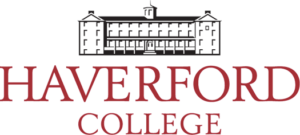
Key Information:
- Stanford University is the #1 top physics bachelor’s degree program.
- A Bachelor’s in Physics opens doors to careers in science, engineering, education, and technology.
- Best bachelor’s degrees provide a solid understanding of physical principles applicable across various industries.
Physics is the kind of major no one quite gets – very few people outside of the scientific field know exactly what a physics degree is or what a physics major does. But for students who are interested in careers in the hard sciences, engineering, education, or any number of other technological fields, a bachelor’s in physics from one of the top schools is an excellent first step.
The possibilities of what job you can get with a physics degree are even more varied if you have additional or advanced degrees and certifications. According to the American Physical Society, most people who have a bachelor’s in physics don’t go on to pursue more advanced degrees in the discipline. But they may complete further study in related fields, such as engineering and medicine. Jobs with an undergraduate degree in physics can be found in healthcare, too. Roles in this sector are varied, ranging from laboratory technician to optical engineer.
Methodology: Ranking the Best Physics Degree Programs
Bachelor’s Degree Center editors know that physics students are smart students. That’s why BDC’s ranking of the best physics schools in America focuses on accredited, respected institutions, ranked according to practical concerns for the student who wants a degree that will pay off: tuition cost, student satisfaction, and potential salary. Because school rankings should tell you what you want to know.
1. Stanford University

Stanford University is known for the Department of Physics. In fact, roughly half of all undergraduate students at Stanford take physics classes. Stanford has certainly earned its reputation for having one of the best Physics degree programs in the world. Students here take part in research opportunities. In the classroom, students benefit from a hands-on learning approach from brilliant faculty members.
Stanford University is a well-known and deeply respected university. Students who graduate from Stanford gain a competitive edge just by having the Stanford name at the top of their resumes. The academics here are complex, challenging, and geared toward career success. Stanford has many great areas of study, but it truly stands out when it comes to the sciences.
What We Like: Stanford University’s research budget has reached $1.63 billion, and it has thousands of externally-sponsored research projects.
Stanford University Physics
2. Massachusetts Institute of Technology

The Massachusetts Institute of Technology, in Cambridge, MA, is one of the top science-focused schools in the world. Unsurprisingly, MIT’S Physics program is one of the best Physics degree programs available today. This program prepares students for either professional work or continued study, depending on their needs and goals. Students can choose from the “focused” plan for future physicists or the “flexible” plan for other career seekers.
MIT is home to future physicists, engineers, and others who excel in science and technology. This school is a leader in both academics and research, and it has a reputation for innovation. Some of the world’s most important scientific discoveries came from MIT. This school was founded to support the Industrial Revolution, and it’s been advancing American entrepreneurship from day one.
What We Like: 59 Medal of Science Winners have come from MIT.
Massachusetts Institute of Technology Physics
3. Harvard University

Harvard University’s Physics program is, unsurprisingly, one of the best Physics degree programs available today. Students learn in fairly small cohorts within this program, so they can get to know their professors and fellow students. Students can also choose from several concentrations, including Mathematics, the History of Science, and more. This program provides opportunities for undergraduates to participate in research, so it makes a top choice for those who want hands-on participation.
Harvard University is the oldest higher educational institution in the United States. Harvard is known for its academic excellence and world-changing research. Students come to Harvard from all over the world, knowing that this school can help them reach their fullest potential. Harvard University students often move on to make a big difference in their communities and around the world.
What We Like: 48 Pulitzer Prize winners have come from Harvard University.
Harvard University’s Physics
4. Yale University

Yale University’s Department of Physics offers several science degree options, including one of the best Physics undergraduate programs in the United States. Students work closely with faculty members in this program. Not only do they conduct their own research projects, they also get to work alongside faculty members on university research. Classes provide equal amounts of challenge and flexibility, and students move on to exciting and worthwhile careers.
Yale University, in New Haven, CT, is a research and academic leader among colleges. The school has a rich history, and it continues to make a difference in the world to this day. With multiple libraries and fascinating collections, Yale shows how its past created a solid foundation for its present and future. Some of the world’s top professors teach at Yale, which is why Yale is a top choice for academic achievers.
What We Like: Yale has a high percentage of international students. Students who go to Yale have lots of opportunities to learn about various cultures.
Yale University’s Department of Physics
5. Princeton University

Princeton University offers a Science degree with a concentration in Physics. In this program, students gain a deeper understanding of how the universe works. It covers a wide range of topics, which is why it’s one of the best Physics degree schools available. Many students in this program move on to careers in physics, while many others use their physics knowledge as a foundation for other careers. In any case, these students benefit from excellent academics and lots of student activities.
Princeton University, in Princeton, New Jersey, has a long history of academic excellence, and it’s one of the most well-recognized schools in the United States. Princeton is more than just academics, though. It also has a deep commitment to research and service. Students at Princeton learn how to use their knowledge to make a difference in their communities and beyond.
What We Like: 21 people from Princeton have won the Nobel Prize for Physics.
Princeton University Physics
6. California Institute of Technology

CalTech’s Physics program is one of the best Physics degree programs in the US today. CalTech has a strong foundation in physics. In fact, all of CalTech’s undergrads are required to take several physics courses, although Physics students take a much deeper dive into the subject. They learn a core foundation of physics knowledge so that they can move on to graduate-level studies.
CalTech is a science and technology-focused university that attracts students from all over the globe. Some of the smartest and most accomplished professors in the world teach at CalTech. This school values innovation and entrepreneurship, both in its academics and in its research. As a result, it makes an excellent choice for Physics students.
What We Like: CalTech, in Pasadena, CA, performs research for many world-renowned organizations, including NASA. As a private school, CalTech is not affiliated with the University of California system like Berkeley.
7. Columbia University

Columbia University has a strong Physics program. It’s counted among the best Physics degree programs in the world. This degree pathway takes a more well-rounded approach than some other programs. Students get to explore physics as a career, but they also get to see how physics provides a cornerstone for other scientific disciplines. This degree combines academics and research opportunities for a complete scientific experience.
Columbia University has a lot of benefits for students. Of course, it’s known for strong academics and challenging classes, but it brings other factors to the table, too. For example, the New York City location provides a great backdrop for networking. Columbia University serves its students and the broader community. Its discoveries have a positive impact on science and technology across the world.
What We Like: US News and World Report ranked Columbia University #3 in their 2021 list of best colleges.
Columbia University Physics
8. Dartmouth University

Dartmouth College’s Physics program is one of the best Physics degree programs in the world. It’s a combined major of Physics and Astronomy, so students learn about the physical world around them and the physical world above. Students can also alter and customize their degrees to focus on options like engineering. This flexible approach provides students with various career pathway options. This program is a popular choice among students who want to make the most of available opportunities.
Dartmouth College is a respected school that blends creative thinking with scientific discovery. It’s a research-focused school, and it has a deep commitment to innovation. Students get to benefit from those innovations, both inside and outside of the classroom. Dartmouth students become lifelong learners, leaders, and independent thinkers.
What We Like: The Carnegie Foundation recognized Dartmouth as having “very high research activity.”
9. College of William & Mary

The College of William and Mary offers three Physics degree programs: Standard Physics, Pre-Med Physics, and Engineering Physics and Applied Design (EPAD). Thanks to the variety that William and Mary offers, these programs are considered some of the best Physics degree programs available. Not only do these programs encourage original research, they require it. Students often choose this school when they want the chance to forge their own pathways.
William and Mary is one of the top public research universities in the United States. It’s also one of the oldest. Its research is cutting edge, and its academics are designed to stretch students’ minds. As one of only eight public Ivy League universities, William and Mary provides the same high academic standards as private Ivy League schools, but for many students, it’s more accessible.
What We Like: William and Mary has one of the top 10 science lab facilities in the nation.
10. Wellesley College

Wellesley College’s Physics degree program accomplishes a lot in just four years. Students learn how physics applies to a broad range of topics, especially the topics that are most relevant to today’s innovations. Plus, the program instills critical thinking skills and flexibility so that students are prepared to face an ever-growing field. This program also comes with some flexibility, letting students prepare either for a career in the sciences or for graduate school. As a result, it’s considered one of the best Physics degree programs in America.
Wellesley is a women’s college dedicated to helping women succeed and grow. This school fosters academic excellence and community involvement. It also fosters leadership skills in its students, no matter the major. At Wellesley, students learn from an interdisciplinary standpoint. They see how their own studies overlap with other fields, and they learn how to benefit from and take advantage of that knowledge.
What We Like: Over 70% of Wellesley students participate in an internship while at school.
11. University of Notre Dame

The University of Notre Dame has two of the best Physics degree programs for science-minded students. One is a general Physics degree program that students can customize with minors and concentrations if desired. The other is a Physics in Medicine program that’s geared toward students who want to go to medical school or pursue a medical technology career. Both of these programs cover the basics of physics and how to apply physics knowledge across different areas.
The University of Notre Dame is a Catholic research university that maintains a commitment to both faith and science. This school fosters a thriving community of learners. Students learn how to become leaders and critical thinkers. Along the way, they also put their faith into action, using their knowledge and opportunities to serve other people.
What We Like: Notre Dame’s Physics program is ranked in the top 10% of US institutions.
University of Notre Dame Physics
12. Colgate University

Colgate University is one of the best colleges for physics majors. It includes small classes, hands-on learning, and excellent facilities. Most importantly, it provides students with a way to learn about some of the most pressing questions in the world. At its core, Colgate’s Physics program is a lens to study the universe. Whether students want to pursue graduate school or an immediate career in science, this program is one of the best Physics degree programs to help them get started.
Colgate University is a rigorous school on a lovely campus. This liberal arts university provides a thorough education. Students get to dive into their own fields of study without sacrificing Interdisciplinary knowledge. This school blends the contemporary with the traditional to provide the best of all worlds.
What We Like: 98% of Colgate students are employed or in graduate school within a year of graduation.
Colgate University Physics
13. Rice University

The Physics program at Rice University is well respected among the scientific community. As a matter of fact, Rice has one of the best Physics degree programs. In this program, students build the skills that they need to teach, research, or make the most of other physics careers. No matter their career goals, Rice Physics students enjoy a combination of theoretical and practical studies.
Rice University is an innovative, enriching university dedicated to preparing leaders for the future. With its academics and research, Rice encourages boldness, creative thinking, and deep study. Rice uses its own name as a statement of its values. In this case, RICE stands for Responsibility, Integrity, Community, and Excellence, and it consistently lives up to those values.
What We Like: Rice University is one of the Top 20 schools in the United States.
14. Carnegie Mellon University

The Physics program at Carnegie Mellon explores all aspects of physics — from the broadest questions of the universe to the minute details of technology. From big to small, this Physics degree emphasizes analytics and problem-solving. This program, one of the best Physics degree programs among US universities, prepares students for any number of science-related careers. Students may also choose the move on to graduate school after earning their degrees.
Carnegie Mellon University is an innovative, forward-thinking school that prepares students for whatever happens next. Much of this innovation happens in the classroom, so students get to experience the cutting edge of education. This school is known for a lot of things, including excellence in the arts and sciences. It combines teaching and research, both of which are used to make a difference in the world.
What We Like: CMU has 39 Goldwater Scholars.
15. Wesleyan University

Wesleyan University has one of the best Physics degree programs for students who want to learn both inside and outside of the classroom. Students learn an array of physics subjects, and they apply those subjects to things like research, thesis opportunities, and more. Some undergraduate students even join grad students and teachers in their research. Physics learners at Wesleyan get plenty of opportunities to enrich their classroom learning, helping them become confident with hands-on work in the professional world.
Wesleyan University a liberal arts school that turns learners into leaders. It’s a small but energetic school that fosters relationships and community. Students get to know their professors, and the small class sizes make learning a better experience for those who get overwhelmed in large lecture halls. Plus, the excellent academics make Wesleyan a good choice for students who are not afraid of a challenge.
What We Like: Wesleyan University is ranked #20 among US News and World Report’s top liberal arts colleges.
Wesleyan University Physics
16. Washington University in St. Louis

Washington University in St. Louis has an excellent Physics degree program. In this program, students develop the skills that they’ll need to succeed in their science careers or in graduate school. This program acknowledges that physics studies can be applied to a variety of careers and subjects, so it prepares students for wherever their own paths may lead them. Students can also choose from a few concentrations to tailor their majors as they see fit. Because of this flexibility, WashU has one of the best physics degree programs for students who want options.
Washington University in Saint Louis is dedicated to critical thinking, curiosity, and working as a community to benefit the greater good. This school pushes students to think outside the box as they pursue creative solutions to the world’s problems. At this diverse campus, different points of view are celebrated every day. Plus, many students take advantage of study abroad opportunities. This global perspective of learning prepares students to see the world in a new light.
What We Like: WashU had 220 invention disclosures in 2018–2019.
Washington University in St. Louis Physics
17. Brown University

Brown University’s Physics program is a learner-centered environment. Students learn from their professors in the classroom and benefit from seeing faculty research. This program has small class sizes, so students get to know their teachers and the graduate students in the program. Students get just as many opportunities to learn from one another as they do to learn from their teachers. For those who want a small, challenging, and focused program, Brown has one of the best Physics degree programs.
Brown University is a challenging and impactful school. It fosters a sense of growth, curiosity, and the desire to make a difference. This top research university makes the most of study and innovation. Brown uses an open curriculum, which means that instead of focusing on core classes, students get to customize their own degree programs. This way, Brown combines academic rigor with academic freedom.
What We Like: Brown University has a 6:1 student to faculty ratio, and 70% of classes at Brown have fewer than 20 students.
18. Haverford College

Haverford College offers a Physics program and a combined Physics and Astrophysics program. Both are counted among the best Physics degree programs in the US. These programs recognize how important physics is to all of the rest of the sciences, and they get students ready for any number of science-based careers and graduate studies. These programs are also designed with flexibility in mind so that students can combine their majors with minors or concentrations.
Haverford College is a student-focused institution. Students here are trusted to forge their own paths, take part in research and scholarship, and offer their input. In both research and study, Haverford College values innovation and creative thinking. Students get lots of hands-on experience with their studies. Instead of just reading about their pursuits, they get to see how those studies apply to the world outside of the classroom.
What We Like: Nearly half of Haverford students are people of color.
19. Cornell University

Cornell University has one of the best Physics degree programs. The program provides strong academics and first-class facilities to learn them in. Cornell’s Physics program has sparked many successful careers in science. Some Cornell graduates have moved on to work at Apple and similarly respected companies. No matter where they go after Cornell, Physics students here get an excellent start.
Cornell is a private, Ivy League university with a dedication to research. This federal land-grant university maintains its commitment to making its community, state, and the surrounding world a better place. Cornell achieves these goals through its innovative and wide-reaching research. In its students, Cornell fosters curiosity and academic passions, pushing those students toward greatness.
What We Like: Cornell is ranked #18 among national universities, according to US News and World Report.
Cornell University Physics
20. Davidson College

Davidson College offers one of the best Physics degree programs, and it also offers some excellent minor options for those who want to add physics studies to their degrees. Davidson sees the study of Physics as a core part of a liberal arts education, given the fact that physics is essential to all of the other sciences. These programs take a broad approach to learning, and they offer built-in flexibility so that students can customize their degrees or study abroad if they so choose.
“We don’t just prepare students for the world,” says Davidson’s website, “we prepare them to make it better.” Students at Davidson live by an honor code. This school values kindness, “humane instincts” and support from one peer to the next. Davidson College is a liberal arts school with several major and minor options. Davidson provides an environment of committed academic study, creative thinking, and preparation to help and serve the surrounding world.
What We Like: 23 Rhodes Scholars have come from Davidson College.
21. Vassar College

The Physics program at Vassar College leads many students to graduate school. Others become teachers, writers, researchers, and any number of other careers after graduation. For all of these students, though, Vassar provides one of the best Physics degree programs. The program covers some of the most basic and most complex questions about the physical world. It helps students cultivate their critical thinking skills, analytical skills, and much more. Vassar College places a high value on scientific thinking for all of its students, which makes it a top choice for those who want to make science a major part of their academic lives.
Vassar University is one of the top liberal arts colleges in the United States. Students learn to excel in thinking, researching, learning, and communicating their ideas. This school is both challenging and highly selective, which means that employers certainly notice when an applicant has graduated from Vassar. This studious community fosters innovation and deep thought.
What We Like: US News and World Report ranks Vassar #13 among US liberal arts colleges.
22. Northeastern University

Northeastern University’s Physics program is home to many smart and curious students who want to know how the universe works. Northeastern recognizes how important physics is to the rest of the sciences, so it approaches physics with the fascination and deep study that it deserves. This program is one of the best physics degree programs, partly because it offers a few options: Physics, Applied Physics, and Biomedical Physics. This way, students can pursue a degree that will work best for their needs.
Northeastern University values learning through experiences. In other words, learning goes far beyond the classroom. Students learn by doing, which prepares them for life after college. Students often travel, research, and work with professionals as they learn. This research-centered school gives students the chance to participate in something bigger than themselves.
What We Like: Northeastern has a global network of campuses, and it has provided experiential learning opportunities in 148 countries.
Northeastern University Physics
23. University of Chicago

The Physics program at the University of Chicago focuses on experiments and experiential learning. Thanks to this hands-on approach, many students consider this program one of the best physics degree programs. In addition to hands-on learning, the program teaches core physics knowledge that students will need if they choose to go to graduate school. Both the major and the minor in Physics leave room for flexibility, so students can make their degrees work for their needs.
The University of Chicago is a research institution that challenges students to think outside the box. With their creativity and critical thinking skills, students learn how to push academic boundaries and pursue new ideas outside of the status quo. Research from the University of Chicago has improved the medical field and other science-centered disciplines. Students often choose this school when they want to challenge themselves and make the most of their skills to improve lives.
What We Like: The University of Chicago has won several recognitions from the American Academy of Arts and Sciences.
University of Chicago Physics
24. Boston University

Boston University’s Physics program ranks among the best Physics degree programs in the United States. This program works for those who want to study physics after college, but it also works for those who want to apply their physics knowledge to other careers such as law or medicine. The built-in flexibility appeals to many students. This program also offers all of the benefits of a large, urban school. However, students get to know and work with their professors, so they don’t have to sacrifice the personal attention that comes from smaller schools.
Boston University is a challenging, high-energy university with a bustling community of learners. This diverse school has plenty of resources to offer learners of all backgrounds. Boston is a research university, which makes it appealing to Physics students and others who want to study science and technology. With its teaching and its research, Boston University seeks to serve its students and the community beyond its walls.
What We Like: Faculty members from Boston University have won many awards, both nationally and internationally.
25. Rensselaer Polytechnic Institute

Rensselaer Polytechnic Institute is one of the world’s top resources for Physics. Many count this school’s Physics program as one of the best physics degree programs available for today’s students. Rensselaer offers several degree pathways for Physics students, including Physics, Applied Physics, and two accelerated programs that speed up the process from Bachelor’s degree to graduate degree. In all of these options, students study deeply and participate in innovative research.
RPI is a research university, blending science and technology to make advancements for the world. This school helps students see how they can put their problem-solving skills to good use. RPI focuses on changing the world for the better, and students here get to see their place in that goal. RPI addresses the most pressing issues that face the world today. Its academics get students ready to see themselves as problem-solvers, too,.
What We Like: RPI is the first technological research institution in the United States.
Rensselaer Polytechnic Institute Physics
Is Physics a Good Major?
To answer the question, “Is physics a good major?”, consider your skills and interests. If you enjoy science and math — even differential equations and calculus — then a major in physics is probably a good choice for you.
Students may also ask, “Why major in physics?” This realm of science is an intriguing one for science-minded students, as it has so many real-world applications. Is physics a good major? It is if you want to stretch your problem-solving skills and explore other areas of science, from oceanography to astronomy.
You may also be wondering, “Why major in physics?” because you’re not sure what your employment prospects will be with a physics degree in hand. Fortunately, the huge uptick in STEM jobs like computer science means you probably won’t have difficulty finding a job in this field. There are more opportunities to pay back your financial aid than in the humanities!
What Can I Do with a Physics Degree?
We may not know many people who have a degree in physics, which leaves many of us wondering what kinds of employment possibilities there are with this credential. So just what jobs can you get with a degree in physics? With your science and math skills, you will be qualified to work in a wide variety of fields.
Jobs with a degree in physics usually involve other sciences, such as seismology, or engineering. But one reason there are so many jobs with a degree in physics is that there are so many branches of it. For example, if you major in physics, you can be employed as a nuclear, particle, or medical physicist (with a specialization in biophysics).
Not surprisingly, many jobs with a physics degree are in the technology field. Undergraduate physics programs can prepare you for physics-related positions like Web developer, systems analyst, software developer, and IT consultant.
Jobs with a degree in physics run the gamut in other areas of science too. People with this background may also work in climatology, meteorology, astronomy, and cosmology. They may also land employment in aeronautics, working on the design and production of aircraft. For instance, those with a physics degree may find employment as navigation equipment specialists. Many people with this science degree go on to work in engineering. Other examples of jobs with a physics degree are industrial engineer and mechanical engineer.
Other life sciences offer plenty of opportunities for jobs with a physics degree. If you want to explore the realms of geology, mechanics, energy and chemistry, you can use your physics knowledge in these related fields too.
A variety of jobs that are physics degree-oriented are research-based. These positions can be found in the public sector, such as in government agencies and public universities. Private-sector employment is also available at private universities and companies involved in everything from telecommunications to the automotive industry.
What jobs you can get with a physics degree also extends to education. People with a physics degree sometimes go on to teach the subject at the junior high or high school levels. With additional qualifications, you may land a faculty position at a college or university. The University of Michigan, the University of Pennsylvania, and the University of Texas are just a few examples. Many physics majors also go on to physics graduate programs to get their doctoral or master’s degree.
What Kinds of Careers Can a Physics Major Have?
Just as there are a variety of jobs in this field, there are also a number of possible pathways to careers in physics. Some people find their calling through an internship before or after graduation. Others have another degree or certification that prepares them for career advancement.
A career in physics doesn’t necessarily require an advanced degree in physics. According to Trade schools, Colleges, and Universities, 41% of physics majors enter the workforce immediately after graduation. Others complete further study in a field such as medicine, engineering, or even law.
A career in physics will likely incorporate aspects of IT, as this field is rapidly growing. Careers with a physics degree can open the door to positions that allow you to research and implement new IT infrastructure, and even work with others to develop it. Since studying physics sharpens your problem-solving and critical thinking abilities, your skills will be highly sought-after.
Another area to find rewarding careers with a degree in physics is the military. Many physicists enter the military after completing their bachelor’s degree. Of course, others complete their degree during the course of their service. Your role will vary depending on your specialization, as you will likely need to participate in additional training. However, your degree can put you on track for promotions and a variety of rewarding opportunities.
Some of the top cities for physics include Austin, Ithaca, Baltimore, Maryland, Philadelphia, Seattle, Santa Barbara, Los Angeles, Ann Arbor, and Pittsburgh. North Carolina, including Duke University in Durham, and Arizona also have numerous opportunities.
Related Rankings:
25 Best Online Accelerated Combined Physics BS/MS
